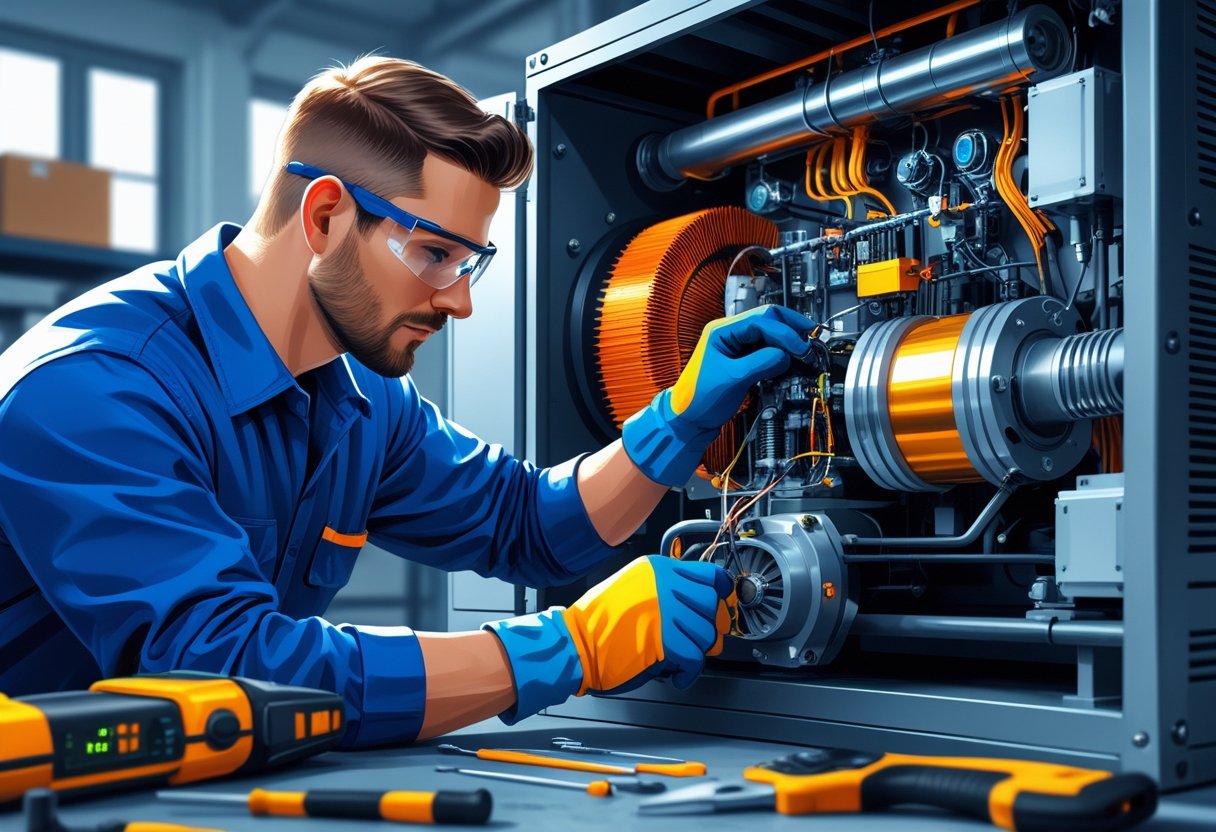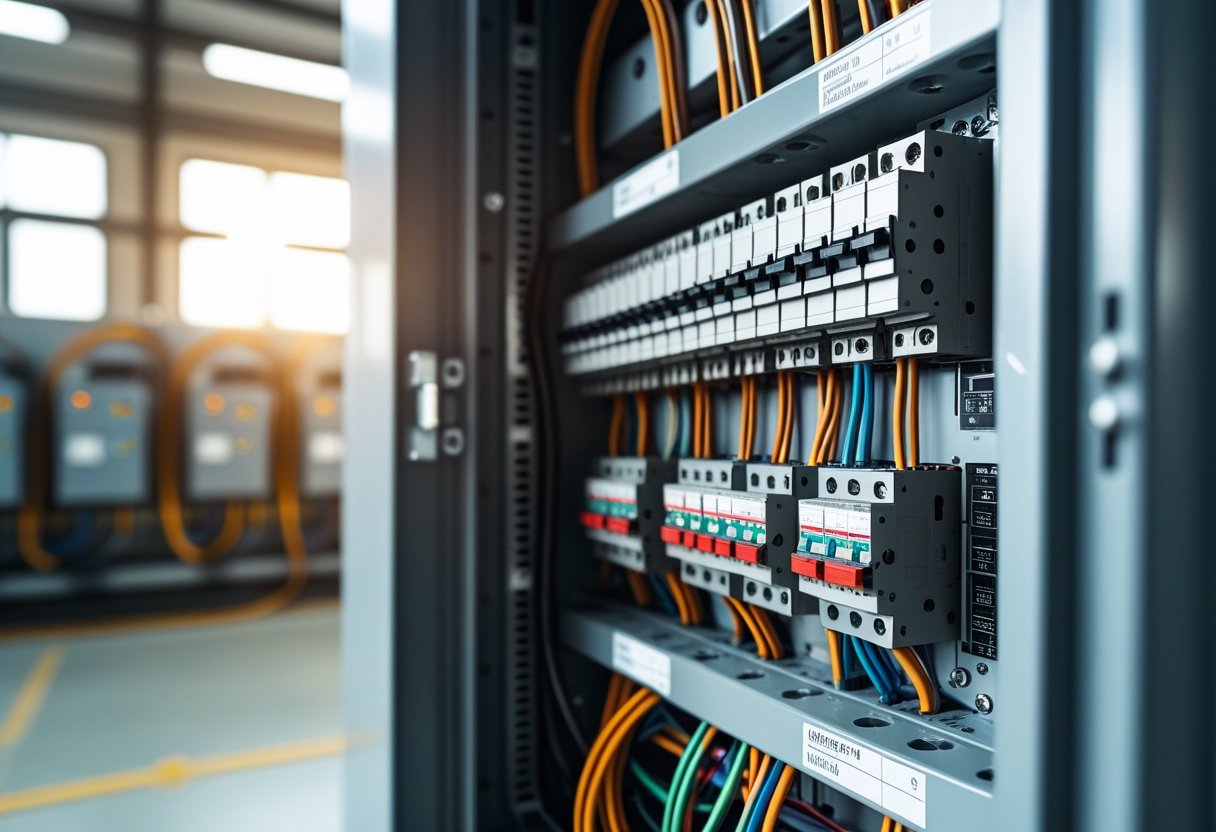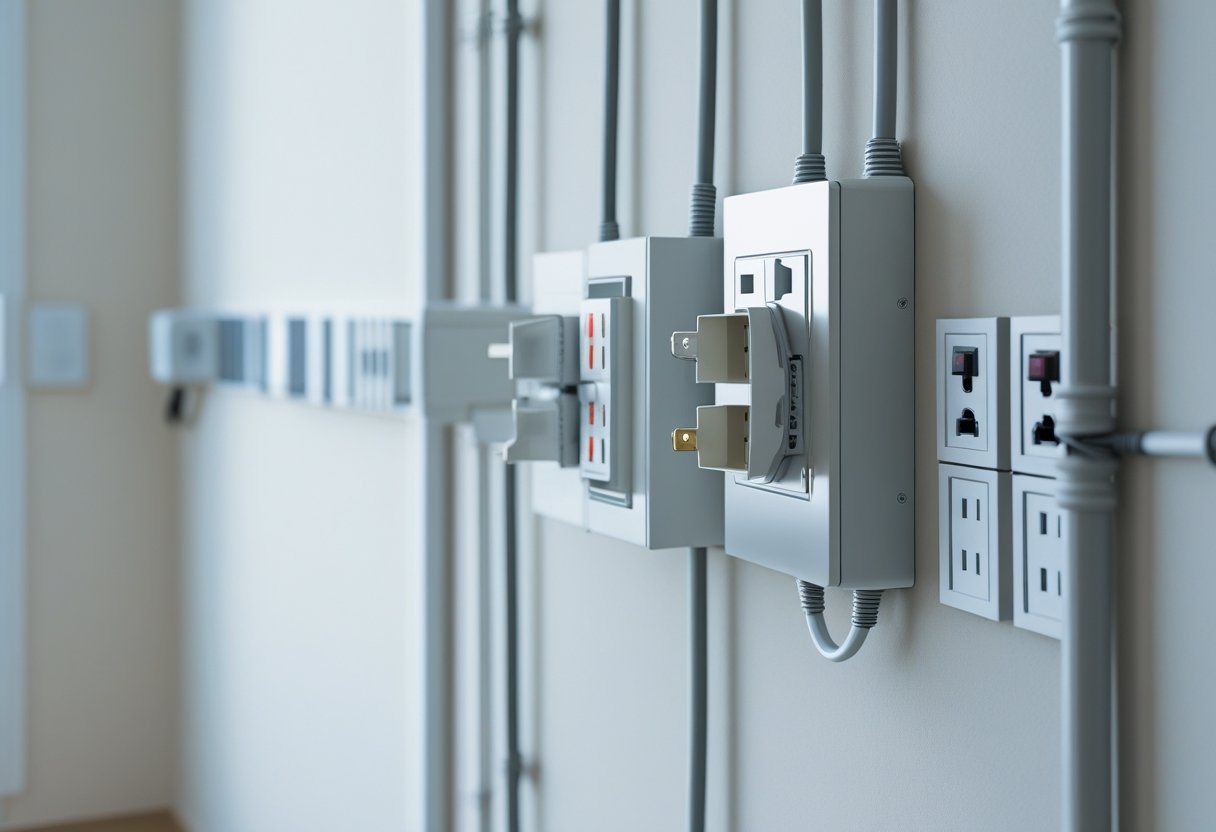When your generator fails, it can disrupt your entire home. Understanding the common issues that require generator repair can save you time and ensure your home remains powered when you need it most. Routine maintenance and prompt repair can prolong the life of your generator and keep it operating efficiently.
At AAA Electrical Services, we specialize in generator repair and installation, ensuring that your backup power system is always ready to go. Whether you live in Sacramento, Roseville, or any of the surrounding areas, our licensed technicians are equipped to handle your generator needs with a commitment to safety and reliability.
Don't let a malfunctioning generator leave you in the dark. By prioritizing maintenance and timely repairs, you can safeguard your family and your home while enjoying peace of mind knowing that experts are just a call away. Trust AAA Electrical Services to provide the tailored solutions you need for your generator system.
Understanding Electrical Generators
Electrical generators have become essential for modern living, providing power in various applications. Knowing the types, how they operate, and their common uses can help you make informed decisions regarding installation and maintenance.
Types of Electrical Generators
There are several types of electrical generators, each serving different needs. The most common are:
- Portable Generators: These are used for temporary power, ideal for camping or as backup during outages.
- Standby Generators: Permanently installed, they automatically kick in during power outages, powering your home automatically.
- Inverter Generators: These provide clean power, suitable for sensitive electronics and quieter than traditional generators.
Each type has its specific applications and advantages. Understanding these types is crucial for selecting the right generator for your needs. If you are considering a generator installation, consult with AAA Electrical Services for tailored advice.
How Electrical Generators Work
Electrical generators convert mechanical energy into electrical energy using electromagnetic induction. The basic components include:
- Engine: Converts fuel into mechanical energy.
- Alternator: Converts that mechanical energy into electrical energy.
- Fuel System: Supplies energy, typically through gasoline, diesel, or propane.
- Voltage Regulator: Maintains consistent voltage output.
When the engine runs, it rotates the alternator inside a magnetic field, generating electricity. This process is vital for powering homes and businesses reliably, especially in areas prone to outages. When looking for professional assistance, AAA Electrical Services offers expertise in generator repair and installation.
Common Uses of Electrical Generators
Electrical generators have diverse applications. Common uses include:
- Home Backups: Keeping lights and appliances running during outages.
- Construction Sites: Providing power for tools and equipment.
- Events and Parties: Supplying energy where it’s not accessible, ensuring smooth operations.
Generators play a crucial role in various sectors, enhancing convenience and safety. For effective generator installation and maintenance in the Sacramento area, consider working with professionals to ensure your system operates efficiently.
Signs Your Electrical Generator Needs Repair
Recognizing the signs that your electrical generator needs repair can enhance your overall safety and avoid costly breakdowns. Here are critical indicators to watch for in your generator's performance.
Warning Sounds and Unusual Vibrations
If your generator starts producing odd sounds such as grinding, banging, or excessive rattling, this may signal internal issues. These noises can indicate loose or damaged components, which necessitate immediate examination.
Additionally, unusual vibrations can suggest that parts are malfunctioning or unevenly weighted. Regular monitoring for these warning signs can prevent further damage. If you notice any of these symptoms, contact AAA Electrical Services for professional assistance.
Startup Failures and Power Loss
A generator that struggles to start or frequently shuts down is a prime candidate for repair. If you encounter startup failures, it could be due to a variety of issues, from a weak battery to fuel supply problems.
Moreover, diminished power output during operation is another critical warning sign. This could mean that your generator isn’t supplying sufficient voltage, potentially affecting your electrical appliances. Timely intervention can avert total system failure, especially in Sacramento’s unpredictable weather.
Visible Damage or Fluid Leaks
Inspect your generator for visible damage, such as cracks in the casing or any signs of wear. These issues often lead to performance problems or even safety hazards if ignored.
Fluid leaks, whether oil or fuel, represent a significant concern. They can indicate a severe internal problem that could lead to system malfunctions or safety issues. If you notice any leaks, it’s essential to address them promptly by reaching out to AAA Electrical Services, who are equipped to handle generator repair needs efficiently.
Diagnosing Generator Problems
When faced with generator issues, a systematic approach is essential for effective diagnosis. This section highlights key areas to focus on, including electrical system testing, mechanical component inspection, and control panel diagnostics.
Electrical System Testing
Begin by assessing the generator's electrical system. Check the battery condition, as a weak or dead battery can hinder performance. Ensure that all connections are secure and free from corrosion or damage. Perform a voltage test at the output terminals to verify that the generator produces the correct voltage. Use a multimeter to measure not just voltage, but also the frequency. This data helps identify potential issues with the alternator or voltage regulator.
Additional steps include:
- Inspecting circuit breakers for tripped switches.
- Testing the outlets for consistent power supply.
If you encounter persistent electrical problems, reaching out to a professional like AAA Electrical Services can ensure a thorough evaluation.
Mechanical Component Inspection
Mechanical components can cause a range of generator malfunctions. Start with a visual inspection of key parts, including the engine, oil levels, and fuel system. Check for oil leaks and ensure proper oil levels, as low oil can lead to engine failure. Inspect the air filter for dirt and debris; a clogged filter can reduce efficiency.
Don't forget to examine the fuel lines for any cracks or blockages. Consider these checkpoints:
- Fuel quality: Ensure it is clean and uncontaminated.
- Hose integrity: Look for wear and signs of deterioration.
If you need assistance with these checks, AAA Electrical Services is available to help diagnose and repair.
Control Panel Diagnostics
The control panel is crucial for monitoring and managing generator operations. Begin by checking the panel for any error codes or warning lights. Refer to the generator's manual to interpret these signals correctly. Each light or code can indicate different issues, ranging from simple maintenance needs to more complex repairs.
While checking the panel, ensure all switches and fuses are functioning properly. Reset the generator if necessary, and monitor its performance after resetting. Some common control panel checks include:
- Testing emergency shut-off switches.
- Verifying that the hour meter is operational.
Routine diagnostics of the control panel can save you from major issues down the line. For a thorough inspection, consider contacting AAA Electrical Services for expert assistance.
Step-By-Step Electrical Generator Repair Process
Repairing an electrical generator involves structured steps to ensure safety and effectiveness. Each phase plays a crucial role in diagnosing and fixing issues, optimizing the generator's performance while prioritizing your safety.
Disassembly and Safety Procedures
Before you begin any repair work, ensure your safety first. Disconnect the generator from power sources and remove any fuel or batteries. Don safety goggles and gloves to protect yourself from potential hazards.
Carefully document the generator's layout and the connections you will disconnect. This will help during reassembly. When you disassemble components, maintain an organized workspace to avoid losing parts.
Inspect for visible damage or wear as you go. Focus on connectors, wires, and mechanical parts that may show signs of corrosion or cracking. This thorough inspection can highlight issues requiring repair or replacement.
Repairing or Replacing Faulty Parts
Identifying and addressing the faulty components is essential for effective repairs. Common issues include worn-out spark plugs, damaged wiring, or failing capacitors. Depending on the problem, you may need to repair or replace specific parts.
For instance, if the spark plugs are dirty or worn, replace them. It’s advisable to consult the manufacturer's specifications for appropriate parts. In some cases, it may be practical to refer to guides that provide step-by-step repair processes.
Utilizing a reliable repair service, like AAA Electrical Services, can offer expertise in locating and fixing the specific issues with your generator. Their experienced technicians ensure a high level of safety and efficiency during repairs.
Testing and Reassembly
After completing repairs, carefully reassemble all components, following your earlier documentation. Make sure connections are secure and wires are properly routed to avoid interference or potential damage.
Once the unit is reassembled, conduct a thorough testing process. Fill the generator with the appropriate fuel and reconnect it to the power source. Monitor for unusual sounds or behavior during startup.
This is also the time to check the output voltage. A multimeter can be used for accurate measurements. Finally, once you confirm everything is functioning correctly, clean your workspace and enjoy the peace of mind that comes from a properly functioning generator.
Preventative Maintenance for Electrical Generators
Regular preventative maintenance is crucial for ensuring that your electrical generator operates efficiently and reliably. By adhering to a structured maintenance schedule, you can prevent potential issues and extend the lifespan of your generator. This section covers essential practices that will keep your generator in prime condition.
Routine Inspection Checklist
Conducting routine inspections is fundamental to generator maintenance. You should regularly check the following components:
- Oil Levels: Ensure oil is at the recommended levels and change it if necessary.
- Fuel Levels: Keep an eye on fuel levels and check for leaks.
- Air Filters: Inspect and replace air filters as needed to maintain air quality.
Additionally, check for corrosion, loose connections, and signs of wear in wiring. Keeping a written log of inspections can help track any recurring issues. Consistent checks can prevent minor problems from escalating, ensuring your generator performs when you need it most.
Maintaining Fuel and Lubrication Systems
Proper maintenance of the fuel and lubrication systems is vital. Start by checking fuel filters and the fuel tank for contaminants. Clean or replace filters according to the manufacturer's guidelines to ensure fuel flows smoothly.
Next, maintain the lubrication system by changing the oil regularly and monitoring the oil filter. Using the correct oil type is essential for optimal performance. Consider using high-quality synthetic oil, as it typically offers better lubrication and longevity.
Ensure all fuel lines are secure and free from leaks. This vigilance not only extends your generator's life but also protects your home from potential fuel-related hazards.
Scheduling Professional Maintenance
For comprehensive care, scheduling professional maintenance at least twice a year is recommended. A qualified technician, like those from AAA Electrical Services, can perform tasks such as detailed inspections and preventive repairs.
During these scheduled services, technicians will test load capacity and check battery life, belts, and electrical connections. This proactive approach helps in identifying issues before they become critical.
If you’re in areas like Sacramento or Roseville, you can access expert care tailored to your generator's specific needs. Remember, prompt and professional maintenance holds the key to a dependable power supply.
Frequently Asked Questions
When it comes to electrical generator repair, there are several key considerations to take into account. This includes identifying credible service providers, understanding repair costs, and knowing common generator issues that might arise. Keep the following questions in mind for clarity and guidance.
How do I find a reputable electrical generator repair service near me?
Look for local companies with strong customer reviews and a proven track record. Check if they are licensed and insured. AAA Electrical Services has been trusted by homeowners in Sacramento and surrounding areas for over 42 years, ensuring peace of mind with every repair.
What is the average cost for repairing an electrical generator?
Repair costs can vary widely, depending on the issue. A minor fix may range from $100 to $300, while significant problems can cost several hundred dollars more. Always ask for transparent pricing before the work begins to avoid unexpected charges.
What are common issues that require electrical generator repair?
Common problems include battery failures, fuel system issues, and electrical malfunctions. Regular maintenance can help identify these issues early, reducing the need for costly repairs in the future.
Is it cost-effective to repair a generator, or should I consider replacing it?
If your generator is relatively new and the repair cost is less than 50% of a new unit, repairs are usually worthwhile. For older models or high repair costs, replacement may be the better option.
Can a standard electrician perform repairs on a generator, or do I need a specialist?
While many electricians can handle basic repairs, it’s best to choose a technician who specializes in generator repair. Specialists, like those at AAA Electrical Services, have the specific training and knowledge to safely and efficiently address generator issues.
How often should an electrical generator be serviced to ensure proper function?
To ensure optimal performance, you should have your generator serviced at least once every 6 months or after 100-200 hours of use. Regular servicing can extend the life of your generator and keep it ready for when you need it most.





